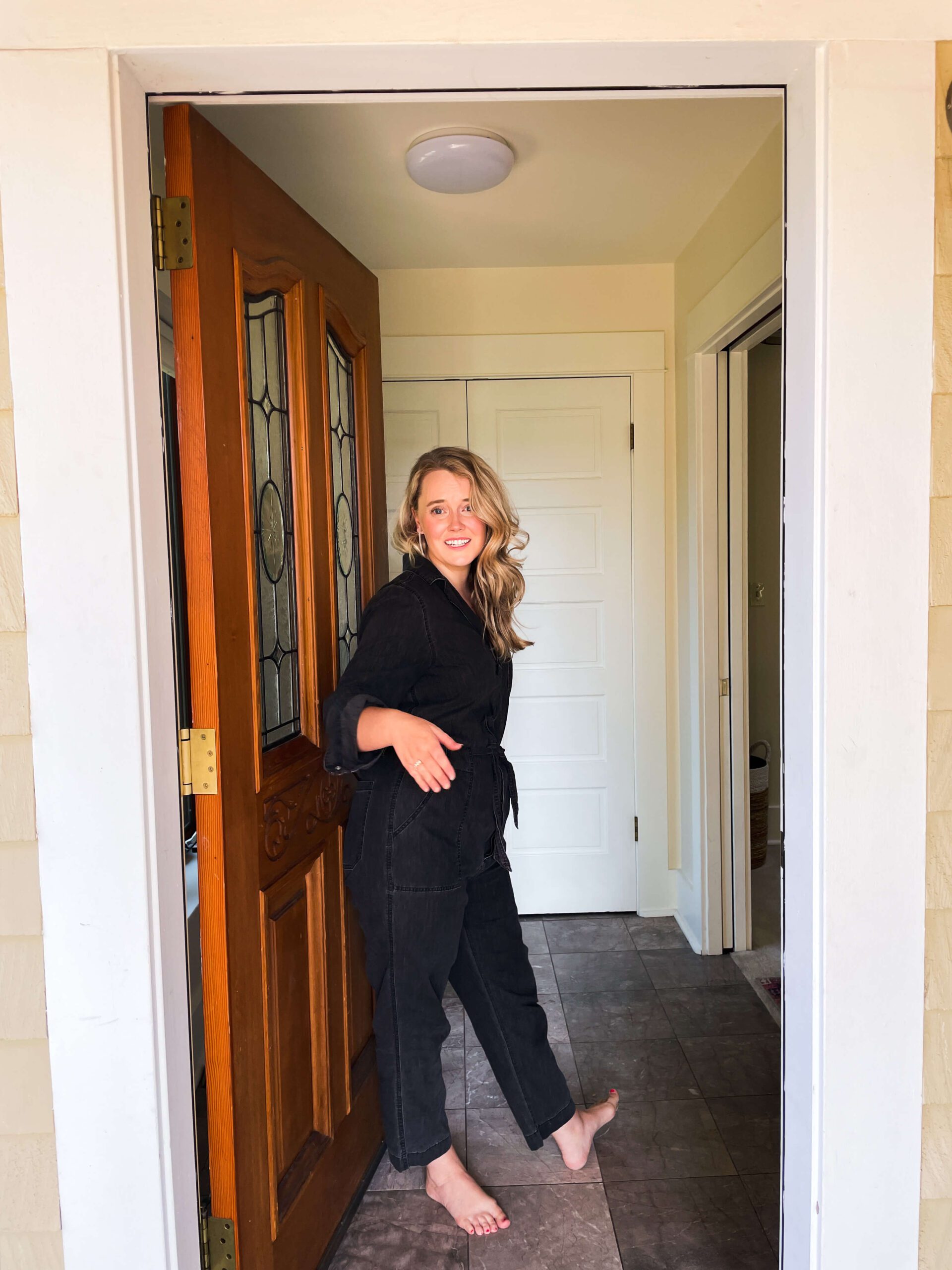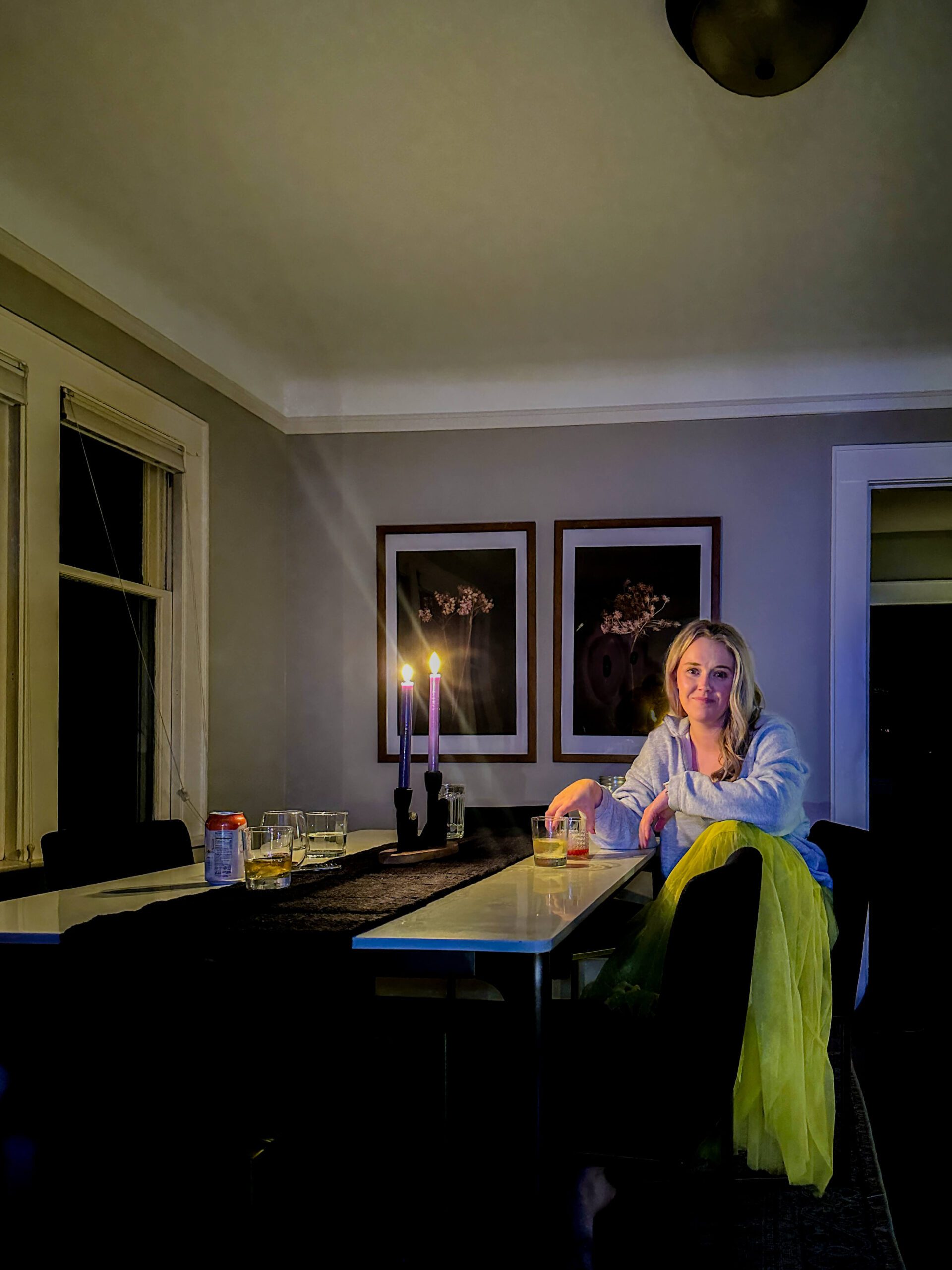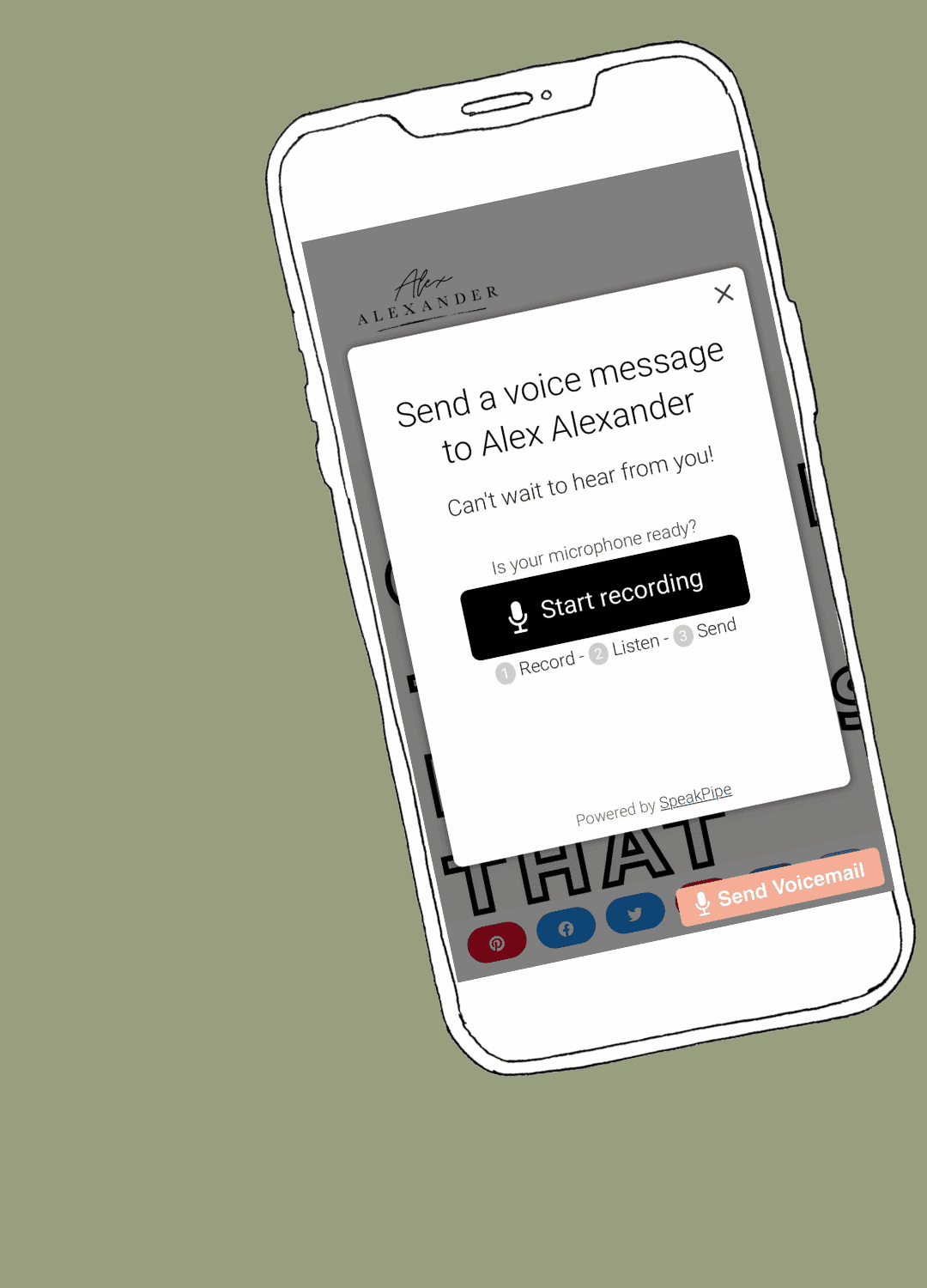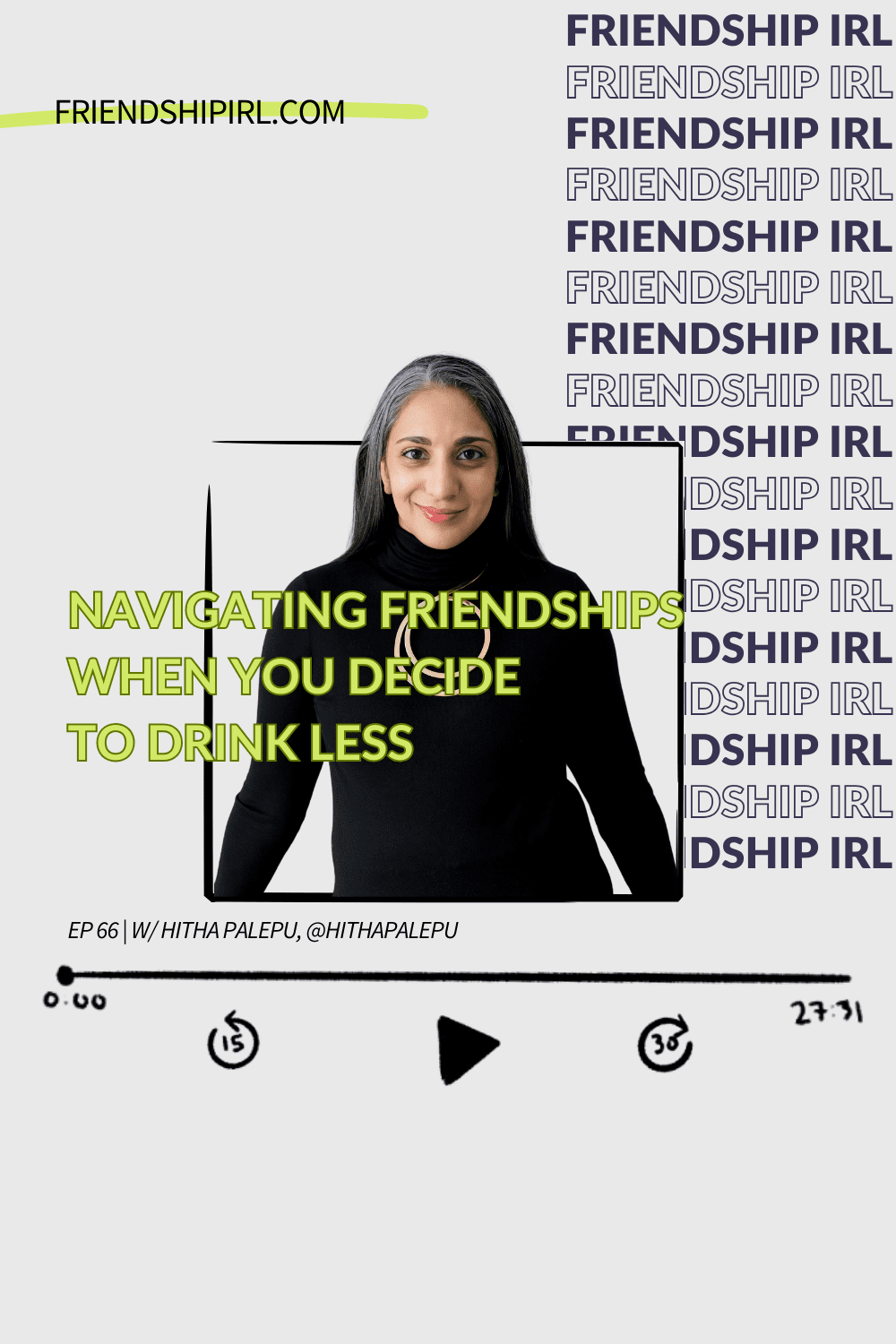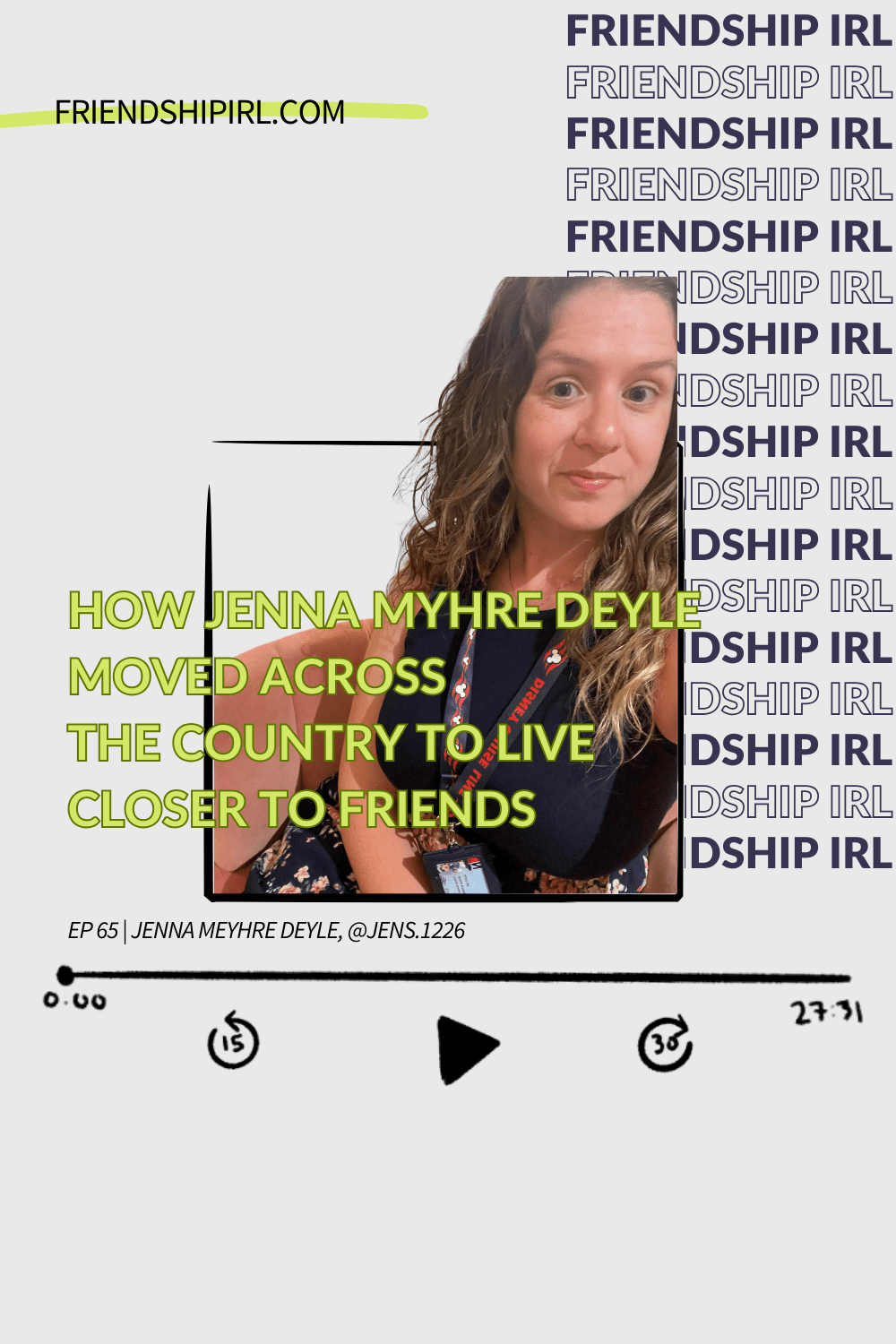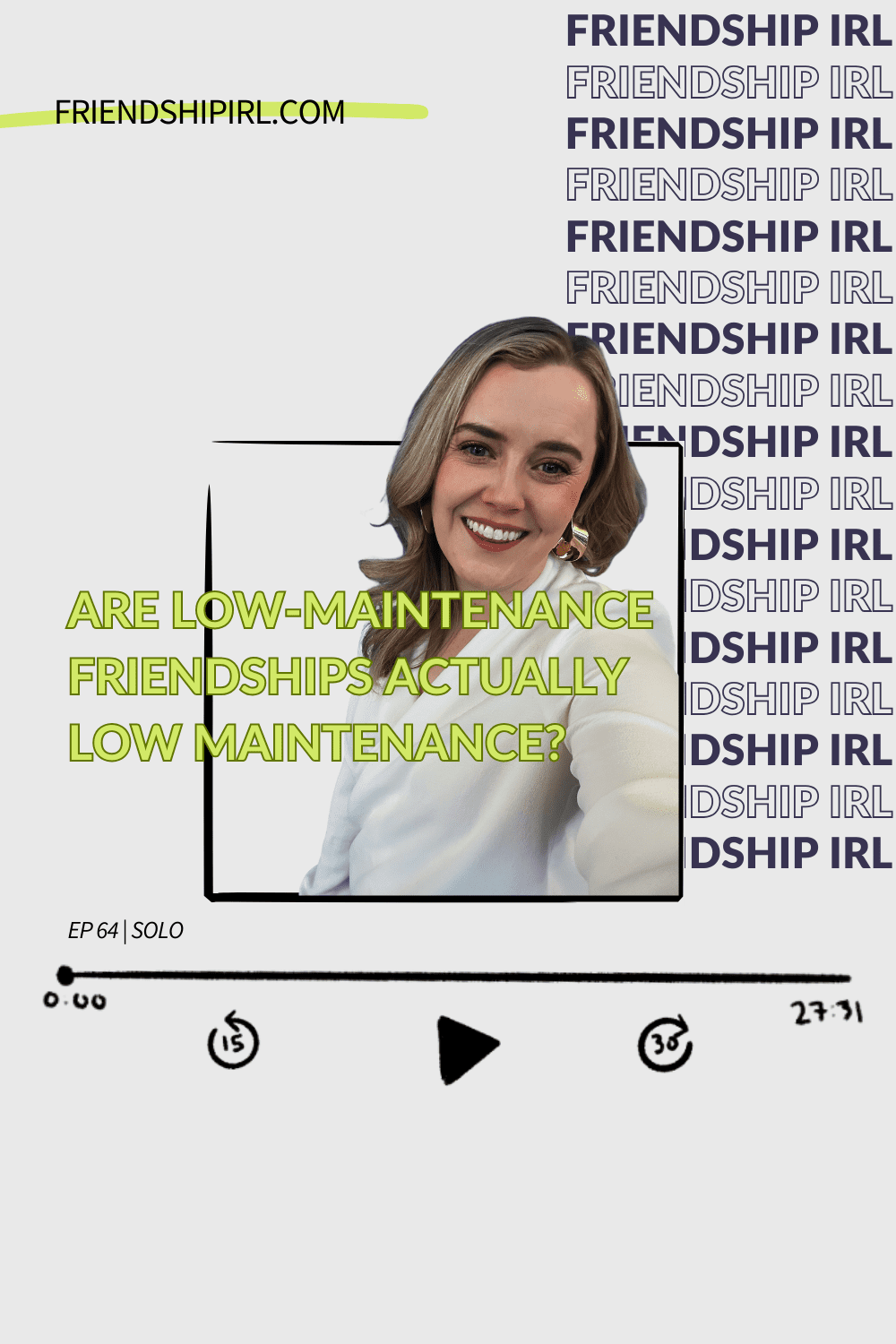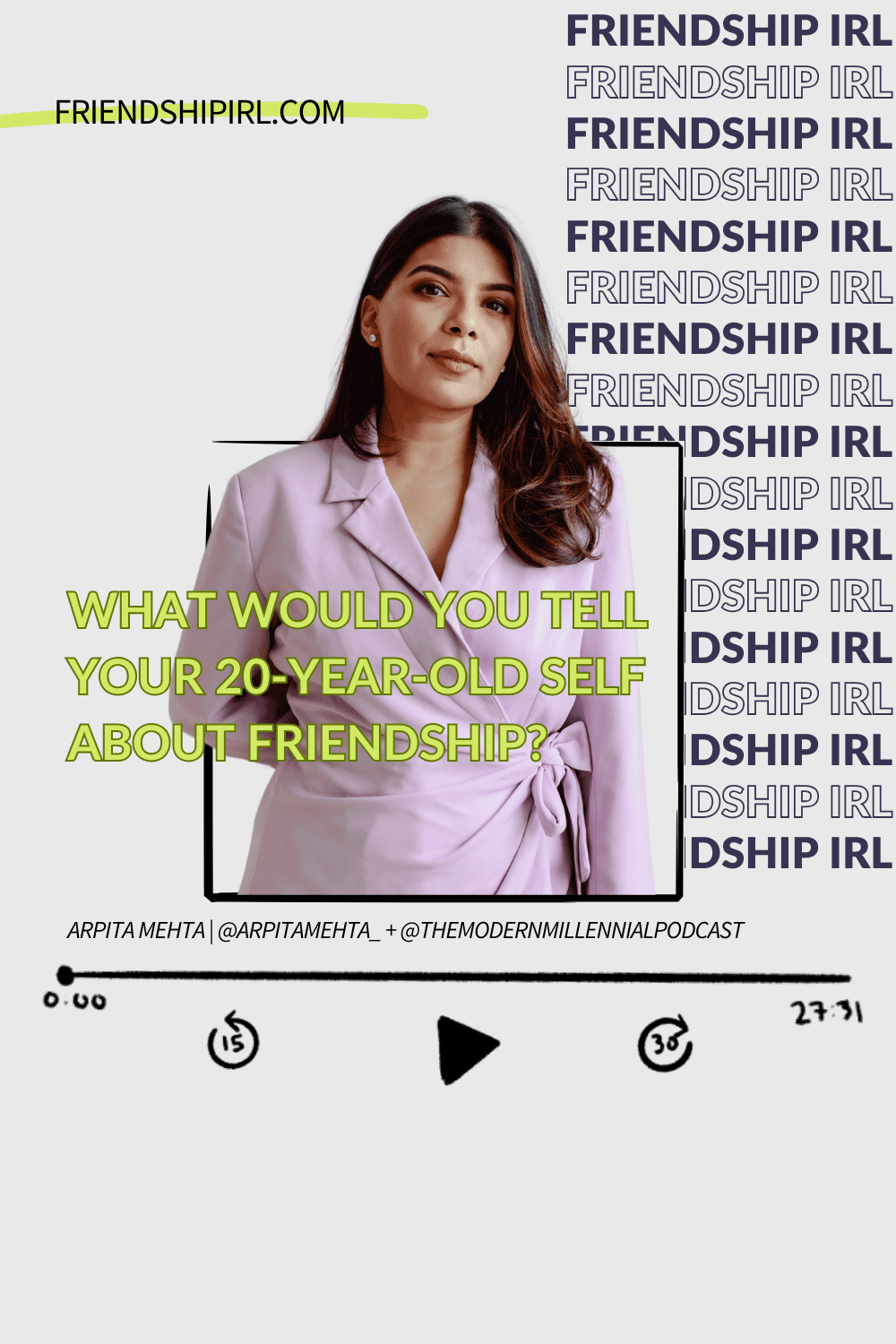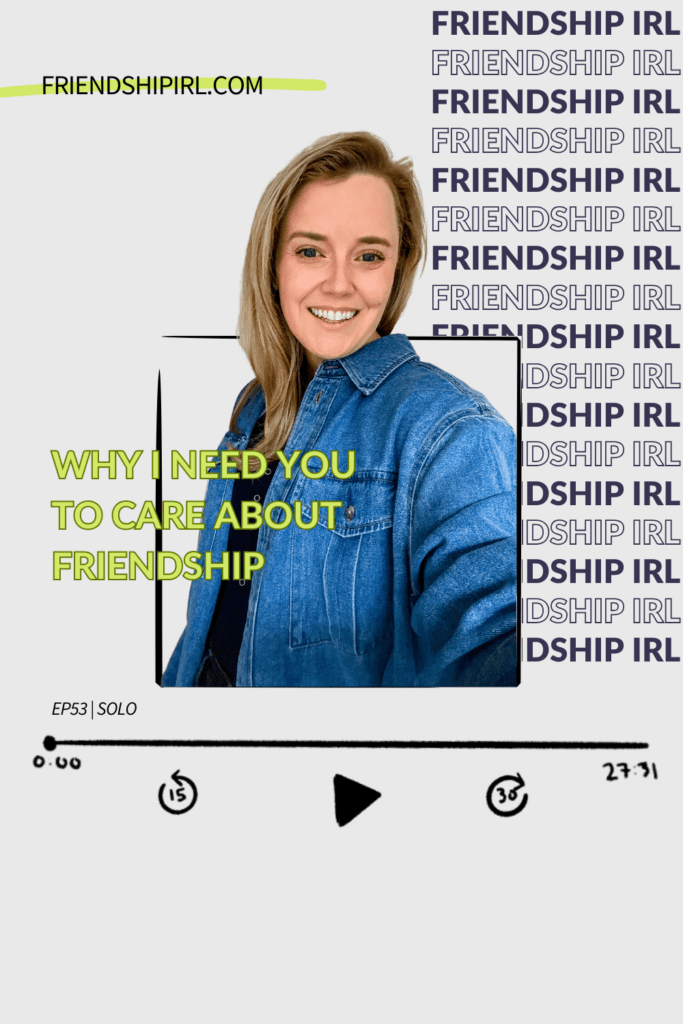
Podcast Description
This week, the Friendship IRL podcast turns a year old. One whole year!
I launched this podcast knowing this was an important topic, but the more work I do, the more I think it’s such a fundamental thing we don’t talk enough about. People have told me this podcast makes them feel seen, which makes me so happy.
But here’s the thing: I cannot do this alone. The only way we make an impact is by people listening, reflecting, and by then making small changes in their own lives. Then, we create a ripple effect, making the social fabric out there a little tighter.
Today I’m talking about why I need you to care about friendship. For me, friendship is foundational, since I didn’t have a strong support system growing up. Here, I go a little deeper into my story.
If this is your first time listening to the podcast, or if you’ve been here for the very beginning: thank you. I’m really excited to dive in on year two.
In this episode you’ll hear about:
- A year with Friendship IRL: we’ve covered loneliness, different types of friendships, societal problems that friendship/connection impacts, lived experiences and more
- My story, growing up in an unpredictable household with substance abuse present – and why friendship isn’t just “nice to have,” but foundational for so many
- How I relied on my friends, friends’ parents, coaches, neighbors, and people around me to learn how to get out of this and not be in survival mode anymore
- How I got creative when I couldn’t find that “all consuming” support system and built a broader support system for myself on instinct made up mostly of friends
- Reasons to care about friendship: for the people who are rock bottom, but also for the people who need support in more simple ways
- The phrase “I’m fine, it’s fine, everything’s fine,” and the relief you can feel when you finally get the thing you need
Reflection Question:
Was there a time in your life when friendship was incredibly important? Did you have the support you needed then? If so, what did it look like? If not, what are some ways you can build your simple connections so that the next time you need help, it’s there?
Notable quotes:
“On my Instagram or in my messaging, I try and appeal to the fact that like, it’s just nice to have friendship. Deep down, don’t think that friendship is just ‘nice’ to have. I think that friendship is foundational. I think that friendship and connection are the missing piece in so many people’s lives. I think that friendship and community and connection are air and we’re all suffocating. I think this stuff is make-or-break dire. It’s not a luxury. It’s not a ‘nice to have.’ It’s a necessity, and we need to be talking about it that way. And you might ask, like, okay, well, why are you so extreme about this? And it’s because of my lived experience.”
“When you have nothing you appreciate everything. Everything. I cannot stress that enough. So I got creative. And instead of looking for that one person – here are some places I looked, for example: my grandparents; my best friend’s mom; my best friends. I looked. But it’s hard to find that. So instead, what I did was I basically built myself this broader support system, instinctively. I didn’t know what I was doing at the time. But I basically just kind of started realizing what each of these people could bring to my life in smaller ways and leaning into that.”
Resources & Links
Like what you hear? Visit my website, leave me a voicemail, and follow me on Instagram!
Want to take this conversation a step further? Send this episode to a friend. Tell them you found it interesting and use what we just talked about as a conversation starter the next time you and your friend hang out!
Leave Alex a voicemail!
Can I add you to the group chat?
Don't miss an update - Sign up for our weekly newsletter.
Until next time…
Take the conversation beyond this podcast episode on friendship! Follow Alex on Instagram (@itsalexalexander) or Tiktok (@itsalexalexander), or send her a voice message directly with all your friendship thoughts, problems, and triumphs by heading to AlexAlex.chat and hitting record.
Episode Transcript
Podcast Intro/Outro 00:02
Alrighty, gang. Here’s to nights that turn into mornings and friends that turn in family. Cheers!
Podcast Intro/Outro 00:18
Hello, Hello, and welcome to the Friendship IRL podcast. I’m your host, Alex Alexander. My friends… They would tell you; I like to ask the hard questions. You know who I am in the group? I’m the person that’s saying, “Okay, I’m going to ask this question, but don’t feel like you have to answer it.” And now, I can be that friend for you, too.
Alex Alexander 0:50
Hello, hello. How are you doing? Are you good? I’m good. I’m very excited today, because I get to tell you that this week, we are releasing this episode, it has been one year of the Friendship IRL podcast. One whole year. And I’m so excited that we’re here. I launched this podcast, knowing that this was an important topic. But the more work I do on this subject, the more I just think that it really is like a foundational piece that we are not talking enough about, the more I think that this podcast is, like so important. I’m really, really proud of the variety of episodes that are already out there. And I now really, really see the broad reaching impact. I see so many other topics and areas that I haven’t even touched yet, when it comes to recording episodes with people with certain lived experiences. And I’m really excited to start on here too where we dive into even more topics. I want to thank you, if you’ve been here from the beginning. I want to thank you If today is your very first episode, I want to thank you if you pay attention or are a part of any of my work. Because here’s the thing, I cannot do this alone, at all, not even a little bit. Sure I’m here, the one with the microphone. But the only way we make an impact is by people listening, and then reflecting on community and friendship in their own lives and making small changes that make a better, stronger, more foundational support system for themselves, which will then trickle down to others and inspire others. And then we’ve created ripple effects with this work. And that’s what I want. I hope that this work that I’m doing helps someday millions of people feel more connected to millions of people. That our social fabric, that the weave is a little bit tighter someday. And that we can experience that as we move through our day within our society. So again, I can’t do this work alone. And I’m just so grateful that you’re here. Thanks for being here and listening to the Friendship IRL podcast. Now let’s dive into today’s episode because today I want to talk to you a little bit about why I need you to care about friendship, and many other people do too. Throughout the last year, I have used a variety of different appeals to get people to be interested, to see how important prioritizing community and friendship and connection in their life is. I’ve talked about loneliness, the different types, how it impacts your health. I’ve talked about how there are greater societal impacts. How a lot of experts out there are talking about really, really big societal issues often a connection as a solution for these really, really, really big societal problems. But don’t give a lot of how do we do the connection part that will then trickle down and fix our big problems. I have told personal stories. I’ve had a variety of people on the podcast who have also told their own personal lived experiences, so that maybe you can listen and one of the biggest responses I get from people is you all tell me that you feel seen and that makes my heart so happy. I’m so happy you feel seen. Because again, I can’t know all the lived experiences, I have mine. And I’ll definitely share about that today. But that’s the joy of having all the guests on. People are sharing their own lived experiences, ones that I may never have, have never had. And a lot of you are saying, “Wow, I’m not alone. I’m not the only one who’s struggling with this.” So today, I want to add another appeal to the list. I want to talk a little bit about my story. Now, if you’ve been here, and you’ve listened to the podcast, maybe you have listened to Episode 19. That episode is similar to this one, but different. In Episode 19, I talk about what it was like to grow up, I guess, with my lived experience. Where this idea that family is everything is like really, really pushed as your only source of support, your ultimate source of support. And when you are somebody where family does not feel safe, or supportive, or foundational, what it’s like to wade through those messages everywhere. That was episode 19. Today, I want to talk a little bit about my story, because I’m doing a little better with talking about it. But I also want to show a little bit how my story, my lived experience probably overlaps in small parts with other people you know, and maybe even with yourself. This episode was inspired by a Instagram Live I did last week with my friend Patrice Poltzer. If you don’t know her, she’s first of all, Episode 25. Go listen to her story about friendship breakup being the most tragic loss in her life. But I worked with Patrice to narrow down my founder story. You can find that on my Instagram, on my website, on Patrice’s website. But when I went to Patrice, I basically said, “Listen, my experience is so overwhelming. There’s so many pieces to it. It’s pretty tragic. And I don’t know how to narrow it down into a concise manner that also doesn’t just feel like I’ve traumatized someone.” And while we were having this Instagram Live, she really reminded me of why I do this work. Why do I care so much about friendship? Why do I need you to care about friendship? Because although sometimes I feel like maybe on my Instagram or in my messaging, I try and appeal to the fact that it’s just nice to have friendship. Deep down, I don’t think that friendship is just a quote unquote nice to have. I think that friendship is foundational. I think that friendship and connection are the missing piece in so many people’s lives. I think that friendship and community and connection are air, and we’re all suffocating. Like I think this stuff is make or break dire. It’s not a luxury, it’s not a nice to have. It’s a necessity. And we need to be talking about it that way. And you might ask, like, okay, well, why are you so extreme about this? And it’s because of my lived experience. So if you’ve never heard my story, the basic of it is that I grew up in a very unpredictable household. It was very full of substance abuse. And from a very young age, I had to raise myself and eventually, my much, much younger siblings. They’re eight and a half and 10 years younger than I am. When I was 13, my mom passed away. And when I go back, and I talked to my sister about what my childhood must have been like, because she’s again, eight and a half years younger, her view is a little different than mine. But when I kind of fill her in on my side of some of the same stories, what she says to me is, “That must have been so lonely.” And it was… it was very lonely. If I look back on it now, I didn’t realize it back then. But it was very lonely. Like it’s scary to be a kid, trying to figure out not only how to survive, but also how to keep your siblings alive. And then add on top of that, how to get yourself out of this situation. Like I don’t want to be in survival mode all the time. And I knew that as a kid. Like I don’t want to keep doing this. But what most people don’t realize when I say like your support system is foundational, when you’re a kid, your support system is your family of origin. And when you don’t have that, you don’t learn a lot of the things that other people are learning. You don’t learn how to brush your teeth, how to manage your money, and when you don’t, what to do about the fact that you have 1000s of dollars in overdraft fees, how to deal with a car accident, having a dependable meal on the table every night. Like there are some very, very, very foundational things that you miss out on.
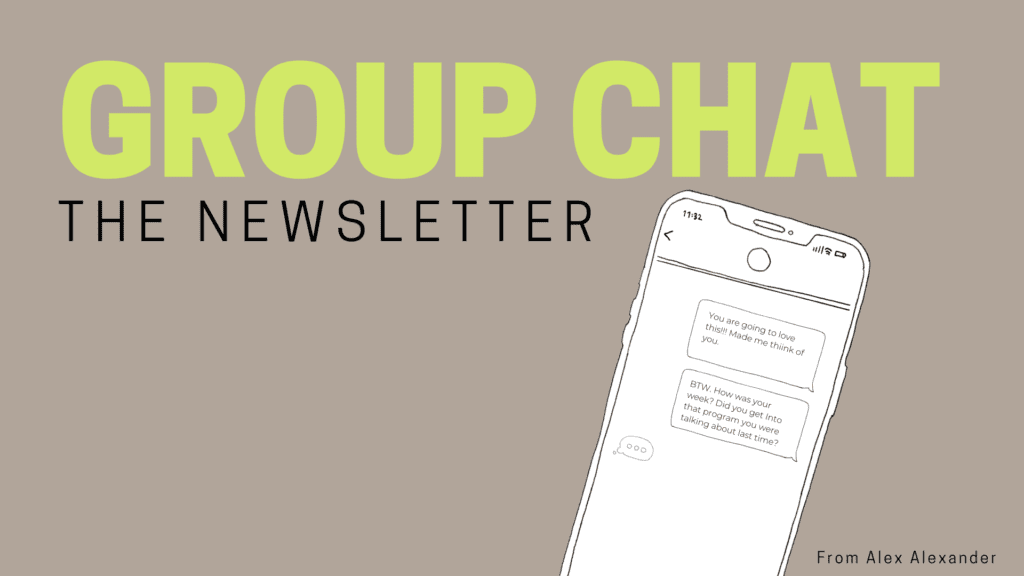
CAN I ADD YOU TO THE GROUP CHAT?
DON'T MISS AN UPDATE - SIGNUP FOR OUR WEEKLY NEWSLETTER.
You’ll get the full scoop on everything we’ve been up to in the last seven days – podcast episodes, blog posts, and updates, plus an exclusive note from Alex every week with her latest, unedited thoughts.
Alex Alexander 10:29
So not only was I worried about those, but I also was trying to tap into any resource that one would teach me those. Like watching my friends brush their teeth and be like, oh, I don’t do it that way, maybe I should do it. But two, watching my friends and my friend’s parents and my coaches and my teachers and my neighbors and the people around me, to watch them, to talk to them, to lean into them for also like how do I get out of this? What are not only the survival things, but the things that are going to help me not be in survival mode anymore. You know, society really tells us that our ultimate support system is our family unit. And if you don’t have that, if you are somebody who has a lived experience, maybe not exactly like mine, but with a lot of similarities, perhaps you’re somebody who went through foster care, somebody who was orphaned, somebody who came out to their family and was no longer accepted or welcomed. Somebody who lived in a household full of mental health concerns, somebody like me who lived in a house with a lot of substance abuse issues. If you are some of those people, and I’m sure many more that I’m not stating here, societal messages really tell you to go out and find this one all consuming person, couple duo that will support you, right? Find that great foster family that will adopt you. Become someone’s chosen family, like that exists out there. Find that one best friend who will be there with you forever. And one, being the person who offers that level of support that is all consuming is a lot. And we can see that when we talk about this stuff, like oh my gosh, you’re going to take in a foster kid, wow. That’s so much to just bring someone in and fully take that on. Like, it’s a lot. And I’m not saying we shouldn’t do that. I’m just saying that there’s like this one route. And the route we’re suggesting is a lot. And therefore, a lot of people aren’t necessarily offering that up. Now, if we go back, and we look at my story, while I was in this survival struggle mode very alone. I mean, I was desperate, I was rock bottom, I was… like when you have nothing you appreciate everything. Everything. I cannot stress that enough. So I got creative. And instead of looking for that one person, whether I mean some places I looked, for example, my grandparents, my best friend’s mom, my best friends, I looked. But it’s hard to find that. So instead, what I did was I basically built myself this broader support system instinctively. I didn’t know what I was doing at the time. But I basically just kind of started realizing what each of these people could bring to my life in smaller ways and leaning in to that. So at first, it was coaches and teachers and friends, parents and neighbors and things like that. The older I got, in high school and college, it became more of my friends. I knew what role they played for support in my life. And it wasn’t just like a luxury or a nice to have. It was very vital and important for me. And that was easy. It was easy when I was younger. Because friendship is really prioritized in your teens and 20s. Like, yeah, go out there, take that trip with your friends, do that thing with your friends. It’s okay to skip holidays this year because you want to be with your friends. Like friendship is really prioritized. But the older you get, and maybe you’re listening to this and you’re like I have never felt like the messaging shifted. And I’m going to tell you that’s probably because you weren’t as hyper-aware as I was. I knew what it was like to have nothing. I built something that felt really good. Societal messages started showing up. That that wasn’t as important anymore, that it wasn’t as stable, that I should just move back home. Like, let me tell you, you may not have been hyper-aware, but those messages are loud. And they are there. And they are persistent. And if I had listened to them, I would have nothing. I would be so lonely and alone. But I didn’t listen. I had to make a choice, though. And my choice was either to keep pretending that this was just a nice to have. Or to start being honest with the people around me about how important the small ways they showed up for me, were in my life. This was scary. I mean, honestly, it was scary, to start telling friends, like, “Hey, I don’t really have what you have with your family. And I know that what you see in our friendship, the ways you show up for me, maybe don’t feel that big to you. But they’re… even the simplest of things are really important to me, like I need those.” Because if I didn’t get my friends to buy in, to see the importance, this wasn’t going to work. When you need support, we all know we’ve all been in a situation no matter who you are, where you need support. And if the person you wish would show up and help you doesn’t… doesn’t have time, it is like oh, well, that’s not really that big of a thing, you’re alone, figuring it out. Like we’ve all been there, we all know what that is like. So we need… I needed my people to buy in, for them to care for them to decide that friendship was important and that whatever contributions they were making, even if they were small, they were worthy of prioritization. Now they’re going to be people who listen to this podcast, and they identify with me, they have a similar lived experience where they felt very alone. So they might see if that’s you, you might see the value of what I’m talking about. But I have a lot of friends, a lot of people in my life who didn’t need that. They had great, foundational, lovely support systems. And I love that for them. But they really had to understand that this only works if they buy in, if they start to actually see that the ways they’re showing up for me matter. Because I think a lot of times, they can just say like, oh, well, it wasn’t that big of a deal. But it was. It was. To me, it was a huge deal. So the reason that I need you to care about friendship is one because you might be like me, and you might need it. Or two, you might be someone who is giving support that you don’t even realize you’re giving. But it’s so vital to someone else. And if I can’t get you to see that, then the people who need it aren’t going to receive the support and the connection they need. It’s a two-way street. But you have to buy in for this to work for the people who need it. Now, I’ve talked a lot about everyone else. And I talked a lot about myself. Like I’m talking about people who are rock bottom, I guess that’s what I’m trying to say. I’ve talked a lot about people who are at rock bottom in their support system and how those people need help. And how maybe, if you aren’t somebody who’s rock bottom, you could be the person that shows up for the person who is. But I want to tell you that just because somebody is at rock bottom, like they’re desperate, doesn’t mean they’re any more worthy of support than you are. Just because I have lows in a lot of areas, a lot of areas, doesn’t mean that somebody who has a low interest in one area isn’t also equally deserving of support. What do you mean by that? You might be someone who has moved, and you have plenty of friends, but you don’t have any friends that live nearby. You deserve friends that live nearby. If that’s you, you might have just graduated college, you might feel really, really lost in the world. You might have a lot of people around you who are saying, well, welcome to adulthood, go find a job. Go get an apartment, go figure out how to pay your bills. And you might just be standing there paralyzed. You deserve people who will slow down and sit with you and say, “Yeah, this is a lot. There’s a lot.” You might be an empty nester where your energy has really gone to raising wonderful kids. And now you’re just not sure what you’re doing. You deserve people in connection that get you out of the house, you’re gonna have some fun, where you can tap back into old passions, you have an interest. You can have new experiences. And then you can go home and you can share those with your kids on holidays and phone calls and things like that. You deserve that. You might be divorced.
Alex Alexander 20:23
I hear this a lot from people, you might be divorced and realize that your entire social fabric, your entire social network, was actually something your partner had built. And when you got divorced, you realize that all your friends are really your partner’s friends or your partner’s friends’ spouses. You deserve new people. You deserve connection and fun and people who show up for you. Maybe somebody’s experiencing a financial crisis or loss of a job. You deserve people who will put your name out there, will say your name and our room, will say, “Oh yeah, that will be a great hire for you”, who will talk to friends of friends and drop your name, you deserve that. And the example I gave on my Instagram Stories, which I think is a really simple one, you might be someone who is a family, who lives far away from your extended family, maybe chose to live in a bigger city a few hours away, or a plane ride. Because that’s where the job you want is. And now you’re out here, trying to struggle through parenting and balancing this job and going after what you want without a whole lot of family support, because you pick to move away. And you deserve to meet people in the city that you love who will be a part of your family unit, who will show up for you and your kids, who will babysit every once in a while. Who will make fun holiday plans with you and it’s too much to fly home. Like you deserve that. Just because you aren’t at rock bottom in all the categories doesn’t mean you don’t deserve support in the ones where you feeling kinda low right now. An example use all the time, you might be a new parent, rocking your baby to sleep at night, just wishing… wishing you had somebody to text about how hard this is. Or you had somebody who would show up and give you one hour. You deserve that, even if you have so much other support. And you might also be the person who is showing up on the giving end of any of those areas. And what you’re doing by showing up matters. We can’t have one without the other. And there are so many people out in the world right now who need support, whether it’s in big ways, like mine, or in simple ways. I have this thing that I’ve been thinking a lot about lately, and I’m just gonna kind of throw it out there. And it’s not fully formed. But I was talking to a friend recently, who also went through some stuff… like some trauma kids stuff, and we were talking about it and she was saying, “I’m fine. It’s fine. Everything’s fine.” Actually, it’s like maybe I said that. I think I said that to her. And she stopped me and she said, “Oh my gosh, wait, you say that phrase too? I say that phrase all the time.” And it’s really got me thinking that, although her and I may, maybe this is like a very common phrase, I think a lot of us are doing this, like the places where you’re saying, “I’m fine, it’s fine, everything’s fine.” “I’m fine, it’s fine, everything’s fine.” “I’m fine, it’s fine, everything’s fine.” Those are the exact places you need support. And if you see someone who’s trying to say they’re fine even through a simple thing, that might be a great place to give support. Because if you could just get what you need, if you could fit the round peg in the round hole, it was just like the right thing, even if it was small? The relief, that sigh of relief of, okay, well, that was easier now. Rather than trying to force yourself to figure it out. It’s fine, I’m fine. I can do it on my own. So I want to appeal to you that we all need to stop believing this lie that all support needs to be all or nothing. That you have to find the family, the best friend, the one person that you have to be that all or nothing you have to show up in all the ways for the people around you. You don’t have to. I don’t know about you. But when I think about that, it’s honestly like a sigh of relief that I can just show up in the ways that I’m really good at showing up for people. And I can show up in small ways consistently. I can also accept the small ways and I can lean into the fact that there is a whole variety of connections out there in the world that are worth my time and are also worth investing in. And well, for me, this type of connection, built on small actions consistently is a lifeline. And for somebody else, it might be the cherry on top. It doesn’t matter, because we all need people. And I hope with that, you can see why I need you to care about friendship. And there are probably many other people in your life, who also need you to care about friendship.
Podcast Intro/Outro 25:41
Thank you for listening to this episode of Friendship IRL. I am so honored to have these conversations with you. But don’t let the chat die here. Send me a voice message. I created a special website just to chat with you. You can find it at alexalex.chat. You can also find me on Instagram. My handle, @itsalexalexander. Or go ahead and leave a review wherever you prefer to listen to podcasts. Now if you want to take this conversation a step further, send this episode to a friend. Tell them you found it interesting. And use what we just talked about as a conversation starter the next time you and your friend hang out. No need for a teary Goodbye. I’ll be back with a new episode next week.

